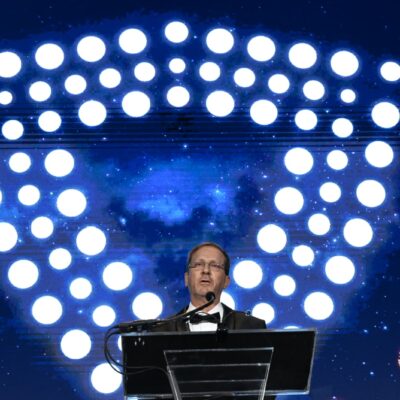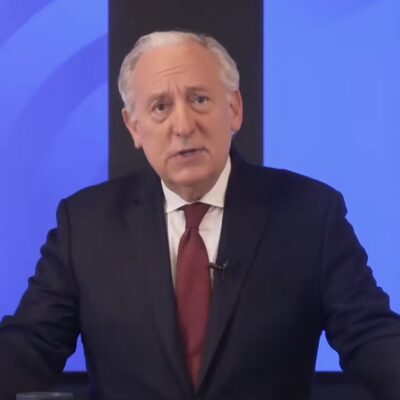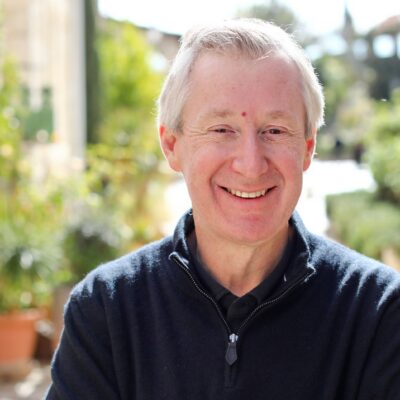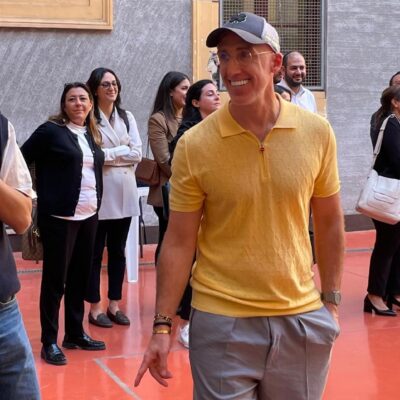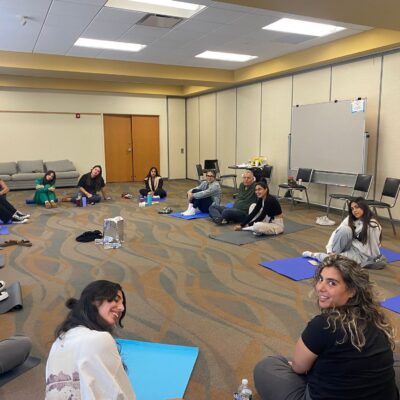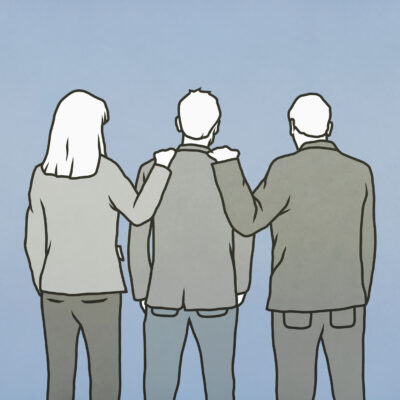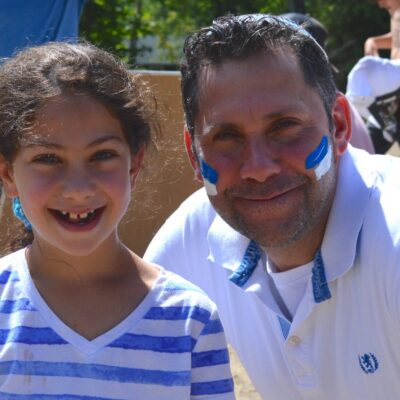Farash Foundation donates $16 million to offer free Jewish camp for all upstate New Yorkers
For many kids, September marks not only the return to school but more importantly begins the nine-month countdown until the return to summer camp. When Camp Seneca Lake’s summer 2025 registration opens on Friday, dozens of children in the Rochester, N.Y., area whose families would otherwise be unable to afford the soaring costs of camp will have the opportunity to partake in Jewish overnight camp at no cost as a result of a new initiative from the Max and Marian Farash Charitable Foundation.
Last week, the Farash Foundation launched Project Campfire. Over the next nine years, the foundation said it expects to commit $16 million to the project — which will provide children who self-identify as Jewish, are in grades three through nine and reside in the upstate New York counties of Monroe, Ontario, Wayne, Livingston, Orleans, Genesee and Yates a “campership” that will fully fund one session of attendance at Camp Seneca Lake, regardless of the families’ income level. One four-week session at Camp Seneca Lake costs about $5,000.
“In trying to think through the future of the Jewish community, and recognizing that Jewish camping, in particular overnight camps, are one of the top predictors of a Jewish child identifying as a Jewish adult, this seemed like the perfect way to invest in the youth of today, which will make the future of Rochester,” Jennie Schaff, CEO of the Farash Foundation, told eJewishPhilanthropy. The initiative comes on the heels of an earlier one that offset the cost by about 18% for children in the area to attend any Jewish camp of their choice. But free camp for all local Jewish children is “the first of its kind” in the U.S., according to Schaff.
Schaff emphasized that despite the financial assistance, the Farash Foundation will remain entirely hands-off when it comes to Camp Seneca Lake’s leadership making decisions on programming and how to run the camp.
While Project Campfire does not look at families’ income, many in the Rochester area are able to afford overnight camp. Schaff expressed hope that these families “will make a donation to camp and thereby help with other needs [such as] facilities, or perhaps creating ‘campership’ for kids outside of Rochester.”
About 40% of campers at Camp Seneca Lake, which is affiliated with the local Louis S. Wolk Jewish Community Center, resides in the Rochester area, according to the camp’s director, Marissa Klegman.
Klegman told eJP that it is “groundbreaking” that Rochester-area families will “no longer have to consider finances when deciding whether to send a kid to camp.”
The initiative also benefits campers coming from New York City, Washington, D.C., and other areas, Klegman said. “Because of Project Campfire and the fact that our Rochester-based families no longer need scholarship resources we provided in the past, we are able to expand our scholarship resources to non-Rochester families and make camp even more affordable,” she said.

 Add EJP on Google
Add EJP on Google



